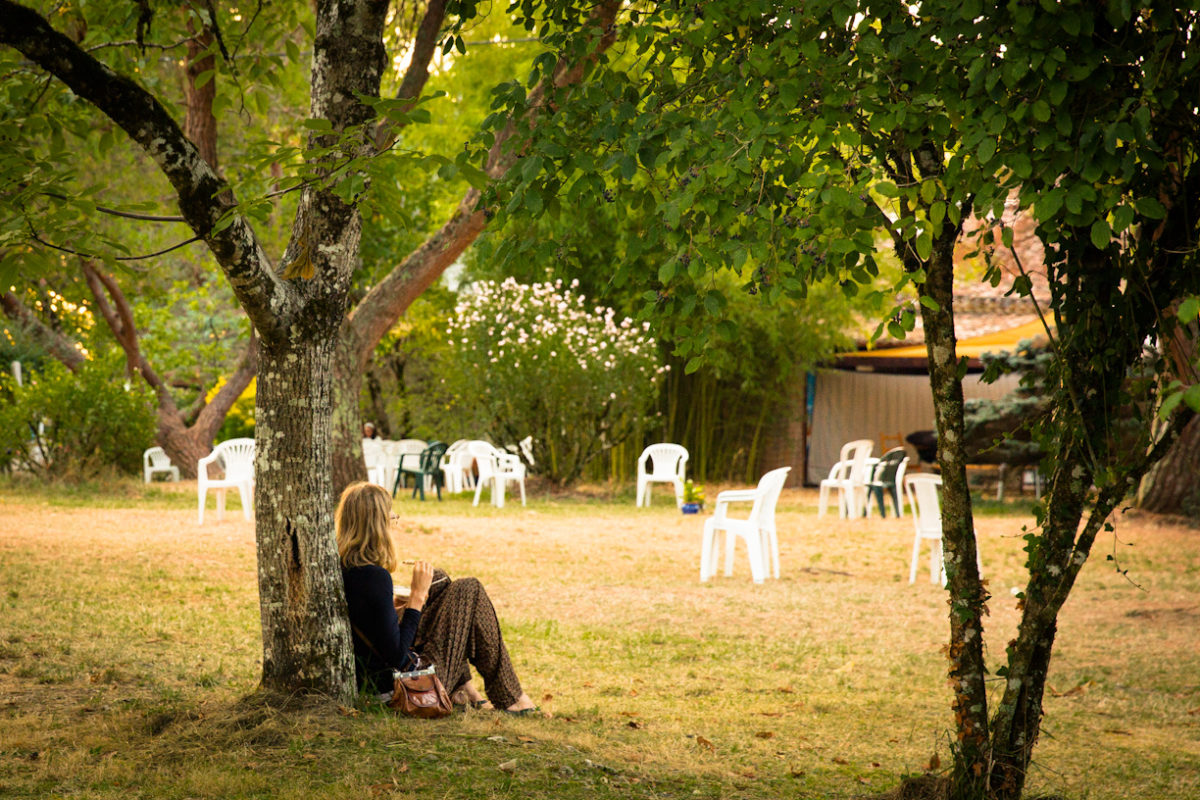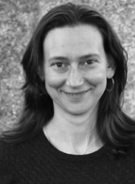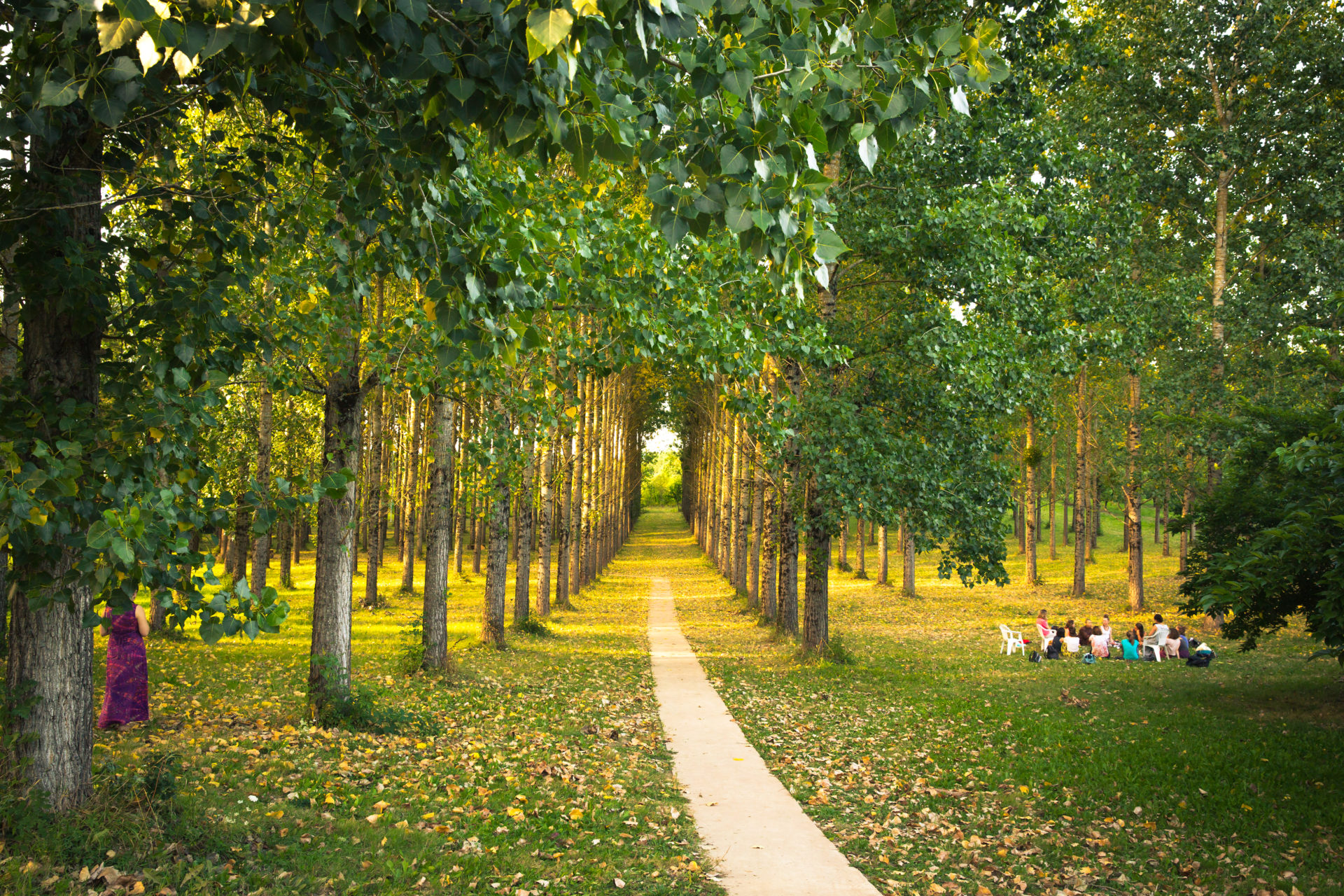By Nadia Colburn

When I first went to Blue Cliff Monastery in New York, I was in both a personal and professional crisis. Indeed, the two felt inextricable. I was a writer and had finished a memoir about becoming a mother. But in the process of writing it, I realized there was another, more difficult story I also needed to tell: the story of my own childhood trauma I had largely forgotten but that had,
By Nadia Colburn

When I first went to Blue Cliff Monastery in New York, I was in both a personal and professional crisis. Indeed, the two felt inextricable. I was a writer and had finished a memoir about becoming a mother. But in the process of writing it, I realized there was another, more difficult story I also needed to tell: the story of my own childhood trauma I had largely forgotten but that had, nevertheless, cast a shadow on much of my life. I didn’t, however, have the tools to fully understand—let alone tell—that story.
Thay’s compassionate, wise teachings on collective karma helped me understand and heal my own story. After the tsunami that took so many lives in Sri Lanka, Thay reminded us that we inter-are: our coal plants operating in one part of the globe affect the ocean temperatures in another; we are all in this together.
Part of what had been so difficult about coming to terms with my own trauma was my internalized feeling of guilt and shame: what had happened to me as a young child, I instinctively felt, was a reflection of me.
But Thay’s teachings helped me see that I was not a guilty child being punished through the terrible act I’d experienced, but instead part of our human world with both its mud and its flowers. In being born human, I was born into a great complex web of different conditions all of which affected me, and which I could treat with compassion, become mindful of, and transform.
My first retreat at Blue Cliff Monastery was focused on the creative arts. I’d spent a lot of time among writers and artists, but this retreat was different.
Writers, for all their candor on the page, can be very guarded. We talk to one another about the beauty of the line, the sentence, the structure of the book, the complex use of language, or the carefully delineated characters. But often, we protect our hearts and speak only from our heads. We don’t show emotion when discussing our work and avoid being seen as “sentimental.”
At first, I found speaking from the heart challenging, as was accepting that it was normal to cry. But the atmosphere allowed the lock on my heart to release: I was able to let down my guard, to relax in a new way, and to feel my sadness and pain and despair without reserve. At the same time, I was able to feel a new glimmer of hope, resilience, clarity, and strength.
We were asked to consider a different set of questions about our art; not the usual, “Is it good, well crafted, full of tension?” but instead, “Is it spoken from the heart, and what is its effect?”
I had spent much of my life thinking about language, studying, and then writing literature. And yet, I had never seen others consider how to speak directly and authentically from the heart. Similarly, I had almost never been part of a conversation that encouraged me to contemplate the effect I wanted my words to have.
Often, contemporary literature and art show the fragmentation, violence, and disillusionment of our society. When Picasso painted Guernica in 1937, he broke form, showing in stark black and white a community and world devastated by suffering, despair, and inhumanity of war.
Almost a hundred years later, in a world that has witnessed more and more violence and more and more fragmentation in our art and in our society, I didn’t want to just re-create a story about violence and suffering. I wanted to find a path to freedom, healing, and reconnection. That was the story I wanted to tell, but I needed to live the story before I could tell it.
Thay’s practice gave me the tools to reconnect with my breath and opened for me a path of understanding and awakening. It also gave me the patience to let the process take its own time. I felt held by a community and a practice. And I felt much less urgency about my career.
I continued to write, but I wrote for myself as a process of understanding and healing. I allowed the question about what effect I wanted my writing to have to percolate in me. Over time, when I had an authentic healing story to share, I began to write publicly again.
I also began to teach writing again, but this time—not within a university system, where we are required to grade students on how well they write—with adults in private workshops, one-on-one, and in my online class. I now bring together writing and mindfulness, and incorporate meditation in much of the teaching that I do.
I encourage my students to write not just of the lotus but also of the mud of their lives, so they can live in their truth. I also encourage them to think of their story as part of a larger human story: in the particulars of our story we learn to see our connection to others. We see both our individual and our shared karma, and we see how our actions, our words, and our practices can help us re-imagine and re-create our world.

Nadia Colburn, Mindful Gardening of the Heart, works as a writing coach and teaches embodied mindful writing in workshops and in her online class Align Your Story. She lives in Cambridge, Massachusetts, with her husband and two children. For more information, visit her website at www.nadiacolburn.com.

